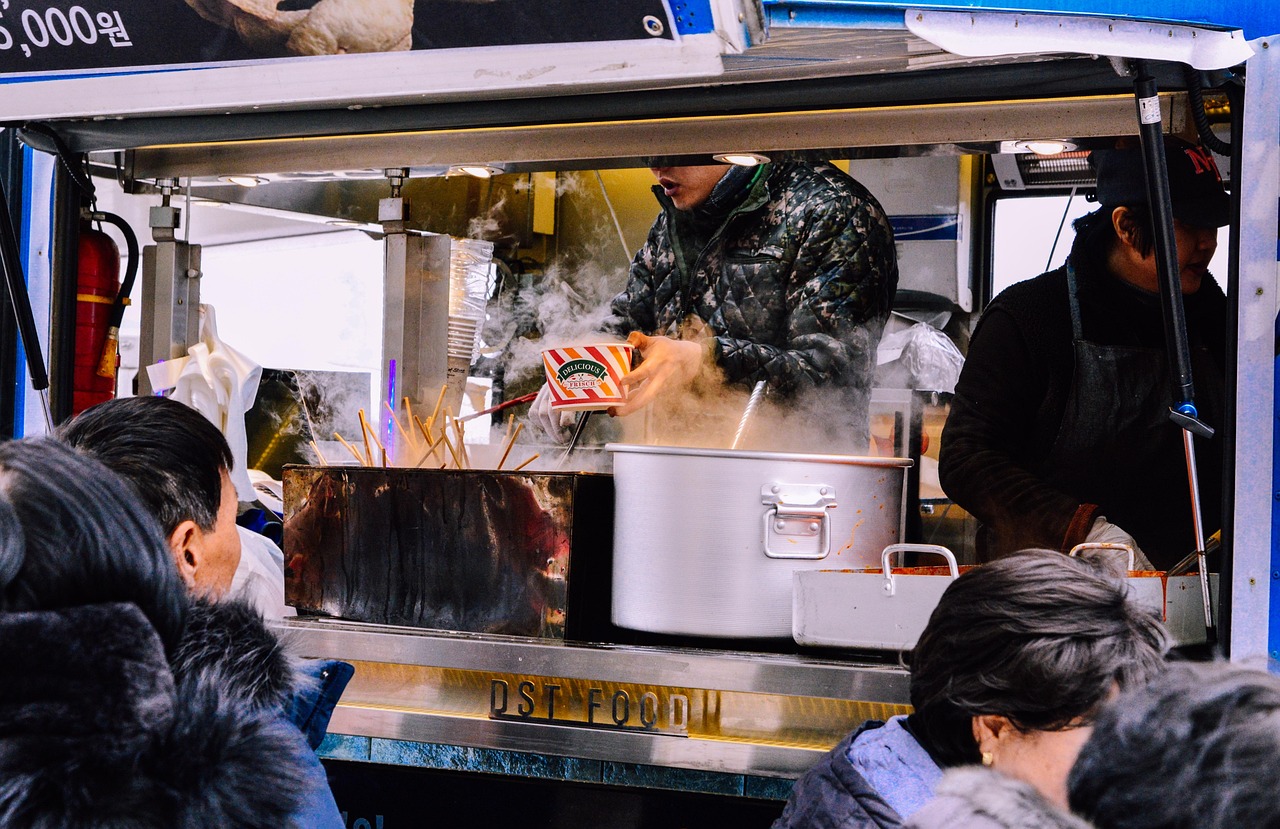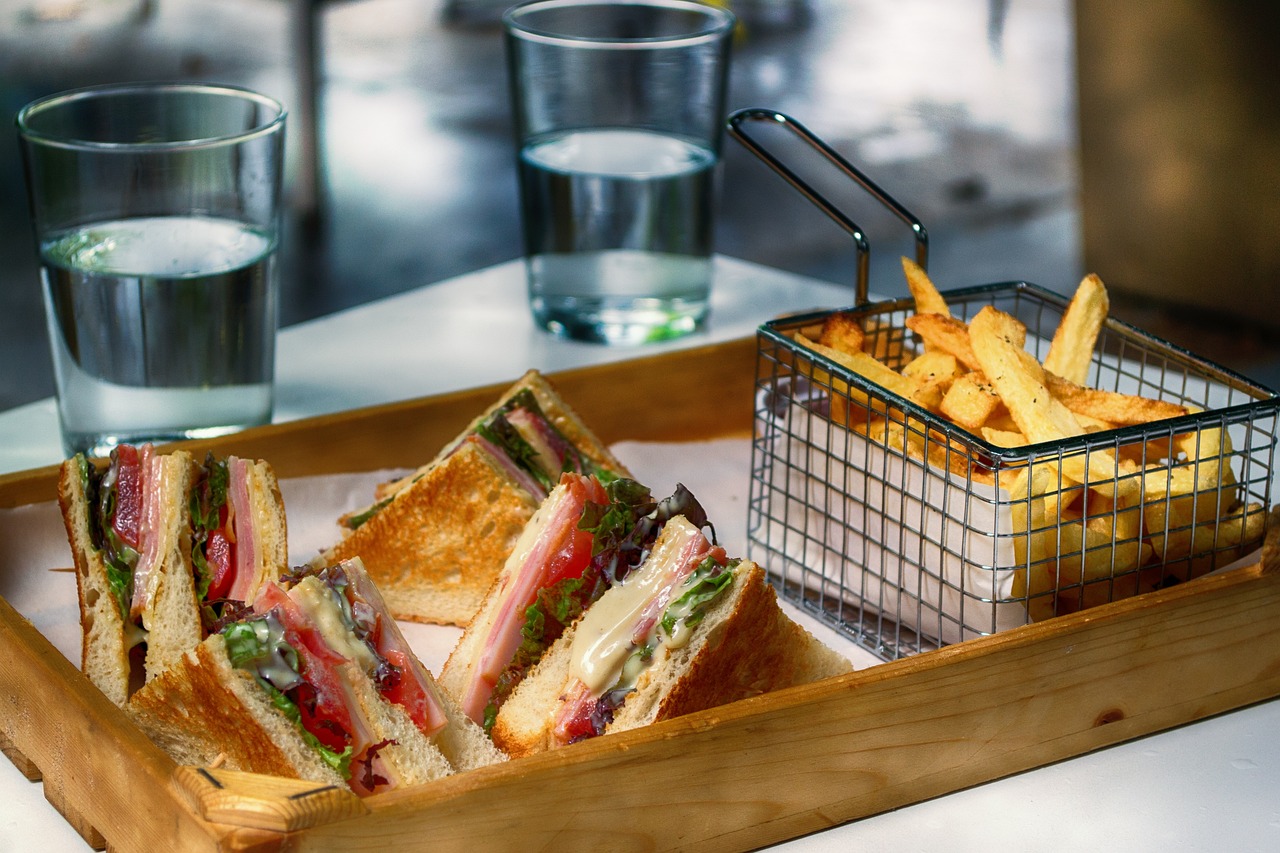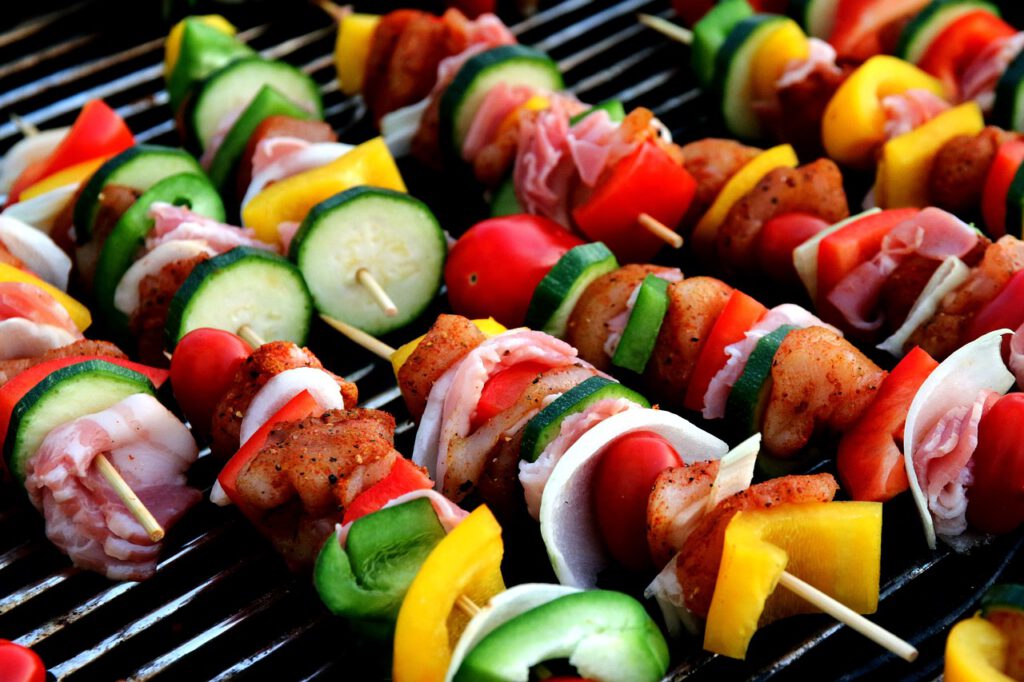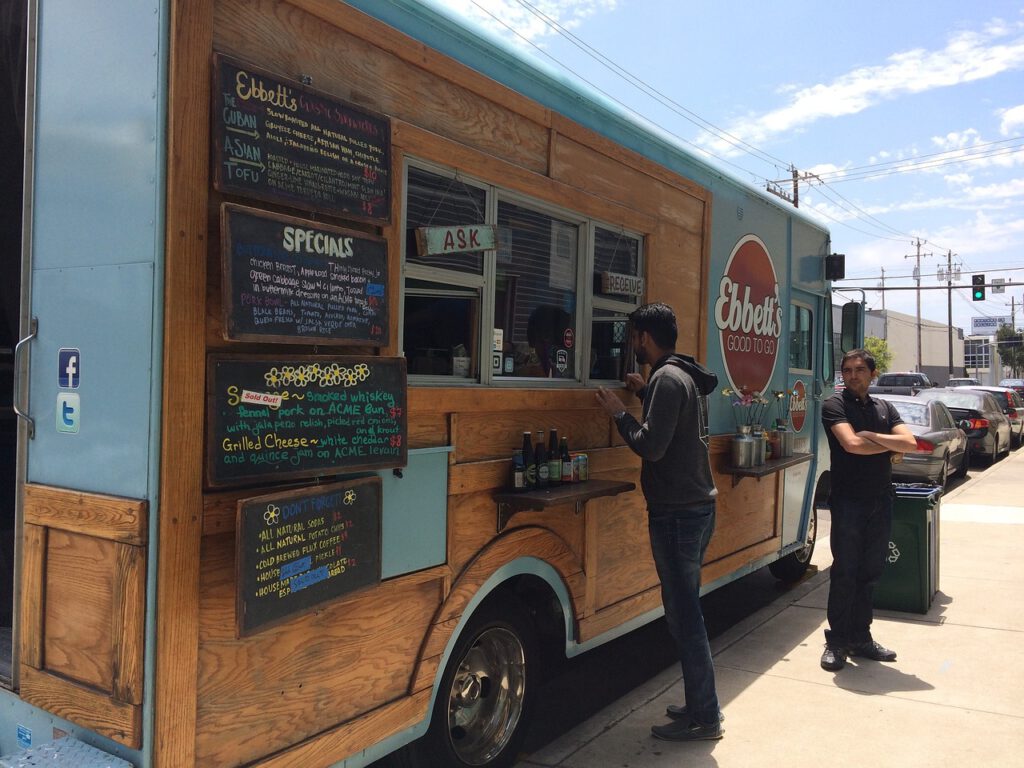Introduction
Picture this: a bustling urban street where the scent of sizzling meat, freshly baked bread, and aromatic spices fills the air. Vibrant, colorful food trucks line the curb, each offering a unique culinary delight. This is the world of food trucks, where innovation meets tradition and mobility brings a variety of cuisines to eager food lovers. Welcome to the revolution of food truck specializing, a phenomenon that’s turning street corners into gourmet destinations and food truck owners into culinary maestros.
The Rise of Food Trucks in the Culinary Industry
Food trucks have evolved from simple street vendors into sophisticated mobile kitchens, capturing the hearts and palates of food enthusiasts worldwide. Over the past decade, food trucks have become synonymous with culinary creativity and urban dining culture. Their rise can be attributed to several key factors:
Affordability and Accessibility: Food trucks offer a more affordable dining option compared to traditional restaurants. With lower overhead costs, they can provide high-quality, gourmet food at reasonable prices, making them accessible to a broader audience.
Unique Dining Experience: The casual, open-air environment of food trucks creates a relaxed and communal dining experience. Patrons can enjoy their meals outdoors, often engaging directly with the chefs, which adds a personal touch to the dining experience.
Social Media Buzz: Platforms like Instagram, Twitter, and Facebook have played a significant role in the popularity of food trucks. Food truck owners leverage these platforms to announce locations, share mouthwatering photos, and interact with customers, creating a loyal following and generating buzz.
The Unique Allure of Food Truck Specializing
While food trucks, in general, have gained widespread popularity, those that specialize in a particular cuisine or type of food have carved out a niche that sets them apart. Specializing allows these food trucks to focus on perfecting a limited menu, delivering exceptional quality and distinctive flavors. This dedication to a specific culinary craft results in a dining experience that is both unique and memorable.
The Art of Specialization
Specialization enables food truck chefs to hone their skills and innovate within their chosen cuisine. Whether it’s gourmet burgers, artisanal tacos, or decadent desserts, these chefs become experts in their field, experimenting with flavors, techniques, and ingredients to create standout dishes. The result is a culinary masterpiece on wheels, where each bite tells a story of passion and precision.
Intimate Customer Interactions
With a focused menu, food truck chefs have more opportunities to interact with their customers. They can explain the inspiration behind each dish, discuss ingredient sourcing, and even provide cooking tips. This level of engagement creates a deeper connection between the chef and the customer, enhancing the overall dining experience.
Benefits of Food Truck Specializing
Food truck specializing offers a multitude of benefits for both owners and customers. For owners, specializing allows for streamlined operations and a stronger brand identity. For customers, it means an assurance of quality and a unique dining experience.
For Owners
Brand Identity: Specializing helps food trucks establish a clear and recognizable brand. By focusing on a specific type of cuisine, they can develop a unique identity that sets them apart from the competition.
Operational Efficiency: A limited menu simplifies inventory management, reduces waste, and streamlines the cooking process. This efficiency can lead to cost savings and higher profit margins.
Loyal Customer Base: Specialization can attract a dedicated following of customers who appreciate the focus and expertise. These loyal patrons are likely to spread the word, generating positive reviews and word-of-mouth referrals.
For Customers
Quality and Consistency: With a specialized focus, food trucks can ensure that each dish is crafted with care and precision. Customers can expect high-quality, consistent meals every time they visit.
Unique Culinary Experience: Specializing food trucks offer dishes that are often not available elsewhere. This uniqueness adds an element of excitement and discovery to the dining experience.
Personalized Service: The smaller, focused nature of these food trucks allows for more personalized customer service. Chefs can interact with customers, providing a more engaging and informative dining experience.


Popular Food Truck Specializing Cuisines
The variety of cuisines offered by specialized food trucks is vast, catering to diverse tastes and preferences. Some popular examples include:
Gourmet Burgers
Gourmet burger trucks elevate the classic burger to new heights with creative toppings, artisanal buns, and high-quality meats. These trucks offer everything from traditional beef burgers to inventive vegetarian options, satisfying burger enthusiasts of all kinds.
Mexican Street Food
Specialized in vibrant and flavorful Mexican cuisine, these trucks serve up authentic tacos, burritos, quesadillas, and more. The use of traditional ingredients and cooking methods transports customers to the bustling streets of Mexico.
Asian Fusion
Asian fusion trucks combine elements from various Asian cuisines to create innovative and delicious dishes. Think Korean BBQ tacos, sushi burritos, and ramen burgers. These trucks bring a unique twist to traditional Asian flavors.
Decadent Desserts
For those with a sweet tooth, dessert trucks specializing in treats like gourmet ice cream, artisanal donuts, and decadent pastries are a dream come true. These trucks offer a sweet escape with their creative and indulgent offerings.
Finding the Perfect Location
Choosing the right location is crucial for the success of a specialized food truck. The ideal location attracts a steady stream of customers and maximizes visibility. Here are some tips for finding the perfect spot:
Research Local Regulations: Different cities have varying regulations for food trucks, including permits, parking restrictions, and operating hours. Understanding these rules is essential before selecting a location.
Understand Your Market: Identify areas with high foot traffic and a target demographic that aligns with your cuisine. Office complexes, parks, universities, and popular tourist spots are often ideal locations.
Leverage Events and Festivals: Participating in local events, festivals, and farmers’ markets can provide exposure to a large audience. These events are perfect opportunities to attract new customers and build a following.
Consider Visibility and Accessibility: Locations with high visibility and easy accessibility attract more customers. Ensure there is ample parking and pedestrian access to make it convenient for customers to visit your truck.
Designing a Standout Food Truck
A visually appealing and well-designed food truck is essential to attract customers and convey your brand identity. Here are some key elements to consider:
Thematic Design: Your truck’s design should reflect your cuisine and brand. Use colors, graphics, and typography that convey your theme and attract attention.
Eye-Catching Graphics: Bold and vibrant graphics can help your truck stand out. Incorporate images of your dishes and ingredients to entice potential customers.
Clear Signage and Menus: Ensure your signage and menus are easy to read and visually appealing. Highlight your signature dishes and use mouthwatering photos to showcase your offerings.
Brand Consistency: Maintain consistent branding across your truck, social media, and marketing materials. A cohesive brand identity strengthens recognition and trust.
Building a Loyal Customer Base
A loyal customer base is the backbone of any successful food truck specializing business. Here’s how to build and maintain a devoted following:
Exceptional Customer Service: Treat every customer with respect and gratitude. Personalized service and attention to detail can leave a lasting impression and encourage repeat business.
Consistency and Quality: Ensure that every dish you serve meets high standards of quality and consistency. Customers should know they can rely on your truck for an exceptional dining experience every time.
Engage on Social Media: Use social media platforms to connect with your audience. Share updates, behind-the-scenes content, and customer shout-outs. Engage with your followers by responding to comments and messages.
Loyalty Programs and Promotions: Implement loyalty programs or special promotions to reward repeat customers. Discounts, free items, or exclusive access to new dishes can incentivize loyalty and repeat visits.
Marketing and Promoting Your Food Truck Specializing Business
Effective marketing is crucial for the success of your food truck. Here are some strategies to promote your business:
Social Media Marketing: Leverage social media to showcase your dishes, announce your location, and engage with customers. Use targeted ads to reach a wider audience and encourage followers to share their experiences.
Collaborate Locally: Partner with local businesses, events, and influencers to increase visibility. Catering events, hosting pop-ups, and collaborating with local influencers can attract new customers.
Food Truck Events: Participate in food truck festivals and gatherings to connect with other vendors and attract a large audience. These events are perfect for networking and building brand awareness.
Online Listings and Reviews: List your food truck on online directories and review platforms like Yelp, Google Maps, and TripAdvisor. Encourage satisfied customers to leave positive reviews, which can attract new patrons.
Traditional Marketing: Don’t underestimate the power of traditional marketing methods. Flyers, business cards, and local advertisements can still be effective in reaching a broader audience.
Overcoming Challenges in the Food Truck Specializing Industry
Running a specialized food truck comes with its own set of challenges. Here’s how to tackle some common issues:
Limited Space: Maximize your limited space by organizing efficiently and investing in multifunctional equipment. Prioritize essential items and streamline your workflow to make the most of the available area.
Seasonal Demand: Address seasonal fluctuations by offering seasonal menu items and catering services. During slower months, consider partnering with local businesses for indoor pop-ups or events.
Competition: Stand out from the competition by emphasizing your unique selling points and consistently delivering exceptional food and service. Keep innovating and updating your menu to stay ahead of trends.
Maintenance and Upkeep: Regular maintenance is crucial to prevent breakdowns. Schedule routine inspections and invest in quality equipment to ensure smooth operations.
Weather Conditions: Plan for adverse weather by having contingency plans like tents or umbrellas. Adapt your menu for different weather conditions to maintain customer interest.
Health and Safety Regulations: Stay informed about health and safety regulations and ensure compliance. Regularly train your staff on proper food handling and sanitation practices to maintain high standards.
Conclusion: The Future of Food Truck Specializing
The future of food truck specializing is bright and full of potential. As the culinary landscape continues to evolve, specialized food trucks are set to play a significant role in shaping the future of dining. Their ability to offer high-quality, unique dishes in a casual and accessible setting makes them a beloved choice for food lovers everywhere.
From gourmet burgers to Asian fusion delicacies, food truck specializing brings culinary innovation to the streets, creating memorable dining experiences that delight and inspire. As customers continue to seek out unique and high-quality food experiences, specialized food trucks will thrive, turning street corners into gourmet destinations.
So, the next time you find yourself wandering the streets, keep an eye out for these culinary gems on wheels. Indulge in their offerings, savor the creativity, and experience the magic of food truck specializing—a culinary adventure like no other.


Here are 25 ideas for food trucks, each with a unique concept or theme:
Gourmet Grilled Cheese: Serve up a variety of mouthwatering grilled cheese sandwiches with creative fillings and artisanal cheeses.
Taco Truck: Offer an array of delicious tacos with different meats, salsas, and toppings to satisfy every taste bud.
Sushi on Wheels: Roll out fresh and flavorful sushi rolls made to order for sushi lovers on the go.
BBQ Pit Stop: Serve up slow-cooked, tender barbecued meats like ribs, pulled pork, and brisket paired with homemade sauces.
Healthy Bowls: Create nutritious and customizable bowls filled with fresh vegetables, grains, proteins, and flavorful dressings.
Farm-to-Table Food Truck: Highlight locally sourced ingredients and seasonal flavors in your farm-to-table mobile eatery.
Italian Street Food: Bring the taste of Italy to the streets by offering classics like pizza slices, calzones, arancini, and cannoli.
Waffle Wonder: Offer both sweet and savory waffles topped with various ingredients like fried chicken, ice cream, or fresh fruit.
Mediterranean Mezze: Serve an assortment of Mediterranean delights such as hummus, falafel, stuffed grape leaves, kebabs, and pita bread.
Vegan Delights: Cater to plant-based eaters by creating a menu featuring vegan burgers, wraps, salads, and dairy-free desserts.
Crepes on Wheels: Prepare thin French-style crepes filled with sweet or savory fillings like Nutella & banana or ham & cheese.
Seafood Shack: Offer a selection of seafood favorites such as fish tacos, shrimp po’ boys, clam chowder served from a nautical-themed food truck.
Bubble Tea Bus: Quench thirsts by serving refreshing bubble tea in various flavors and toppings from a vibrant and colorful bus.
Indian Curry Cart: Spice things up with aromatic curries, biryanis, samosas, and naan bread from an Indian-inspired food truck.
Thai Street Eats: Delight customers with authentic Thai dishes like pad Thai, green curry, mango sticky rice, and satay skewers.
Pancake Palace: Serve fluffy pancakes topped with sweet or savory ingredients like fresh fruit, maple syrup, bacon or fried eggs.
Gourmet Burgers & Fries: Craft mouthwatering burgers using high-quality ingredients paired with hand-cut fries and unique dipping sauces.
Ice Cream Truck: Bring joy to ice cream lovers by offering a variety of flavors, cones, sundaes, and toppings from a whimsical ice cream truck.
Pho Van: Warm hearts with comforting bowls of Vietnamese pho filled with fragrant broth, noodles, herbs, and tender meats.
Hawaiian Poke Bowl: Create customizable poke bowls featuring fresh fish or tofu marinated in flavorful sauces alongside rice or salad options.
Mac ‘n’ Cheese Factory: Indulge mac ‘n’ cheese enthusiasts with a range of creative twists on the classic comfort dish using different cheeses and toppings.
Fresh Juice Bar on Wheels: Offer an array of freshly squeezed juices made from seasonal fruits and vegetables to promote healthy hydration.
Bagel Truck: Serve up traditional New York-style bagels loaded with various spreads and fillings for breakfast or lunch options.
Crispy Chicken Coop: Delight chicken lovers with crispy fried chicken sandwiches served with slaw, pickles, or specialty sauces on the side.
Donut Wagon: Satisfy sweet cravings by offering a selection of freshly baked donuts in an assortment of flavors and glazes.
Remember that these ideas are just starting points; you can always put your own twist on them to create a unique and successful food truck concept that caters to your local market’s preferences and demands.
